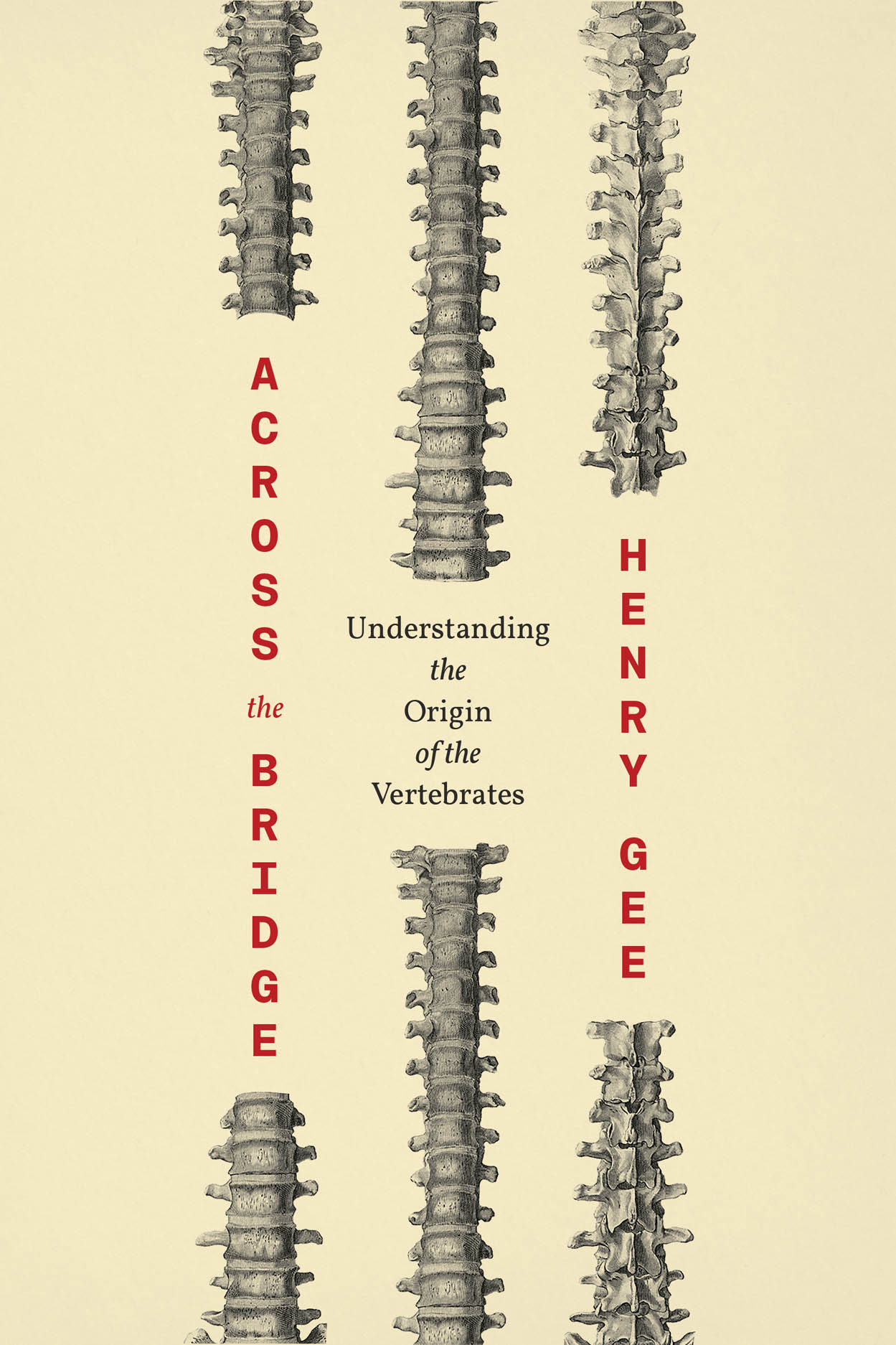Nature reviews Henry Gee’s “Across the Bridge: Understanding the Origin of the Vertebrates”
 The story of the evolution of life on earth is an incomplete one, with many ellipses in the narrative of how simple organisms, some of which seem like little more than spontaneous experiments in organic chemistry, somehow grew to become the massively complex organisms that we see around us today. Interestingly, one of the gaps that has both confounded and fascinated scientists the most is the origin of the vertebrates—the origins of us.
The story of the evolution of life on earth is an incomplete one, with many ellipses in the narrative of how simple organisms, some of which seem like little more than spontaneous experiments in organic chemistry, somehow grew to become the massively complex organisms that we see around us today. Interestingly, one of the gaps that has both confounded and fascinated scientists the most is the origin of the vertebrates—the origins of us.
Over the past few decades there has been an abundance of research done on the subject, so much so that distilling it into a clear picture of our current understanding of the subject could be a daunting task. Though daunting it may be, there is perhaps no one more suited to it than paleontologist and evolutionary biologist Henry Gee, whose new book, Across the Bridge: Understanding the Origin of the Vertebrates draws on his many years as senior editor at Nature to comb through the research to help us to see how far the field has come in crossing the invertebrate-to-vertebrate divide—and how far we still have to go.
But you don’t have to take our word for it. A recent review penned by one of Gee’s colleagues at Nature concurs:
“Across the Bridge is a deft and well-argued distillation of how advances have shifted the field to the point of dispatching some of the most influential and elegant classical hypotheses, and it is a bold attempt at developing a new synthesis. It thereby deepens understanding of our own
evolutionary origins.”
The article offers up a very interesting synopsis of the book as well as some great background on the search for the origins of vertebrates. It is currently available in its entirety on the Nature website.
Pick up a copy at your favorite bookstore or on the University of Chicago Press website.